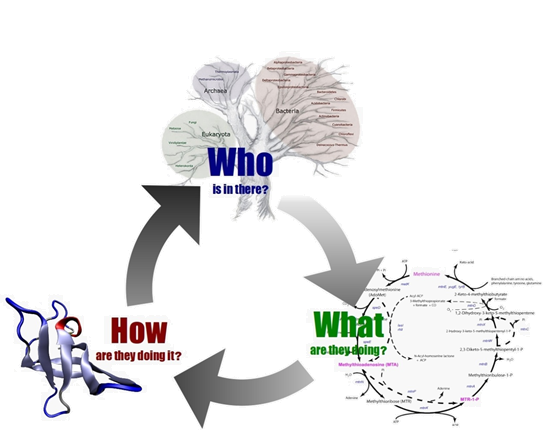| |


Environmental Genomics
Environmental genomics (metagenomics) seeks to predict how an organism or organisms will respond, at the genetic level, to changes in their external environment. These genome responses are diverse and, as a result, environmental genomics must integrate molecular biology, physiology, toxicology, ecology, systems biology, epidemiology and population genetics into an interdisciplinary research program. Environmental genomics serves as a manual for an environmental scientist who wishes to embrace genomics in an effort to answer environmental questions. Uncultured microorganisms comprise the majority of the planet's biological diversity. Microorganisms represent two of the three domains of life and contain vast diversity that is the product of an estimated 3.8 billion years of evolution. In many environments, as many as 99% of the microorganisms cannot be cultured by standard techniques, and the uncultured fraction includes diverse organisms that are only distantly related to the cultured ones. Therefore, culture-independent methods are essential to understand the genetic diversity, population structure, and ecological roles of the majority of microorganisms. Metagenomics, or the culture-independent genomic analysis of an assemblage of microorganisms, has potential to answer fundamental questions in microbial ecology. |
|

